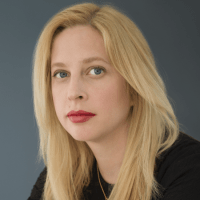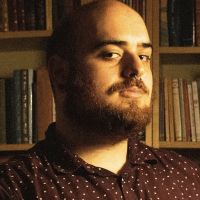Brian Castleberry

“When I get stuck on a project or between things, my first reaction is to grumble around the house and act like the world has come to an end.
Jump to navigation Skip to content
In this online exclusive we ask authors to share books, art, music, writing prompts, films—anything and everything—that has inspired them in their writing. We see this as a place for writers to turn to for ideas that will help feed their creative process.

“When I get stuck on a project or between things, my first reaction is to grumble around the house and act like the world has come to an end.

“I’ve struggled with writer’s block most of my life, but writing my novel, Beauty, taught me a lot. What got me in the flow of the writing—and helped me to stay there—was taking a shoemaking class. The protagonist in Beauty adores couture and boots.

“What motivates me to write? The honest answer is perhaps a little dark: I imagine the feeling of great regret I’ll have to live with, if I don’t write the book that I know I can write. The wish to avoid that regret feels like fuel.

“As much as I have always been a writer and reader, entranced by what language does on the page, I have always been in love with visual art and the movies, so much so that I call myself an ekphrasist: a writer whose work engages with visual art.

“Here’s an antidote for a writing slump: Record yourself reading a polished passage from your working draft. Go ahead—don’t be shy.

“I recommend soup, always, and especially now. It is comfort and it is excitement, both specific and universal.

“Read. That’s the advice we give to writers, whether they’re young, or just starting out, or stymied by writer’s block.

“When I’m struggling with writing fiction, I turn to reading other forms: poetry or, most often, nonfiction that intensely investigates a topic unfamiliar to me. Research can be a way to take breaks while also feeling productive and enriched.

“I do most of my writing longhand, in lined notebooks. One unquestionable benefit to this approach is that you can take a notebook anywhere, leaving laptop and phone behind, and when you get there your only options will be to write or to stare at a wall.

“Marginalized writers are often taught to think our narratives are too messy, nonlinear, or cyclic under the gaze of western imagination—a mindset which naturally leads to trapping ourselves in our own heads.